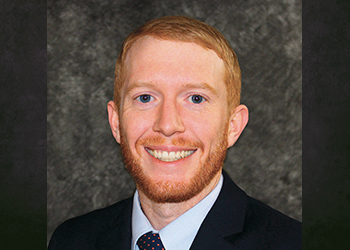8 Uses for Trust Management Services

by Chase Cooper CFTA, AFIM
There is no such thing as a “typical” trust client. Trusts are used by people of all ages to achieve a wide variety of goals. One common element amongst our clients is that each desires some type of professional financial service. That service might be record-keeping and bill payment, investment portfolio management, property management, estate administration, providing for needs of a family member, or aiding a charity. Sometimes it’s a combination of all of these. Below is a list of the most common examples:
Financial Management
Some of our clients have reached an age where they no longer want to be burdened by their financial chores. These clients may rely on us to monitor their investments, see that their income needs are being met, pay their bills, or make arrangements if they need to move to different living accommodations. If they own property, they can engage us to negotiate with renters, supervise property maintenance and interact other service providers.
Maintaining Control/Protecting Assets
Some trust clients are persons who wish to exert influence beyond their own lifetimes, either by prescribing how assets are to be used for their heirs or by providing future gifts to favorite causes. Oftentimes a parent or grandparent may be uncomfortable with the thought of leaving their assets to someone who has just come of age, or to someone who is not financially responsible. In those cases, their estate planning documents should direct that the inheritance go to a trust that will continue until the child reaches a specified age or demonstrated competency in financial affairs. Typical age designations are 25, 30 or 35. Some Trust language provides for partial distributions at various ages or milestones, while others provide a single lump sum distribution. Some trusts even extend beyond a single beneficiary’s life to go on benefiting more than one generation.
Minimizing Taxes
As of the time of this writing, federal estate taxes don’t kick in until a person has more than 11.58 million dollars in assets. Double that number if they’re married. As a result, Estate Tax minimization is now reserved for the ultra-wealthy. However, regular Americans can still take steps to minimize income taxes and/or capital gains taxes. Specially designed trusts that include charities among the beneficiaries can bring about significant tax savings, while providing income to the donor or a family member for a lifetime.
Special Needs
Parents or grandparents of a person with a disability, no matter the age of their child, need to ensure that the child does not lose their public assistance by receiving a direct inheritance of any kind. Through advanced planning these clients have arranged for assets, which otherwise would have been inherited by the child, to go to a special trust that can provide the types of benefits the child does not receive from public assistance.
Court Appointment
Sometimes our services are requested by the Courts. One way this can happen is when a child is awarded or inherits money. If the child is under the age of 18, the Court must appoint a Conservator to manage the money for the benefit of the minor. Other times a Conservatorship can be put in place for individuals suffering from diminished capacities. In addition to investing the money, the Conservator must make decisions about how the money will be used for the benefit of the child until the child reaches age 18. Additionally, the Conservator must report to the Court each year on how the money has been used.
Estate Administration
Another service we provide is to act as the personal representative of their Estates. In this role we have the duty of gathering, protecting and accounting for the assets of the estate, paying final expenses, filing the appropriate tax returns, and distributing assets to the beneficiaries named in the will. When we act as personal representative, grieving family members, who are busy with their own lives, or may not live nearby, are not burdened with administering the estate of a deceased loved one.
Charitable Purposes
We provide investment and administration of funds for many charitable organizations. Donors, particularly those who want their gifts to continue in the future, place their gifts with us to be invested and used according to their wishes for the charity of their choice. In this aspect of our work we administer scholarship funds, and donations to healthcare organizations, libraries and museums, churches, sponsors of cultural and educational events and organizations that provide youth services.
Employer Retirement Plans/Rollovers
We serve as administrator of retirement plans such as profit-sharing and 401(k) arrangements for a number of businesses, and as trustee for rollover IRAs for many retired persons.
Do any of these aspects of trust services sound like something you need? To find out if we can help you or one of your family members, contact one of our Trust professionals today.
Investment products are not deposits, not FDIC insured, not insured by any federal government agency, not guaranteed by the bank, and may go down in value.







